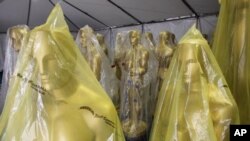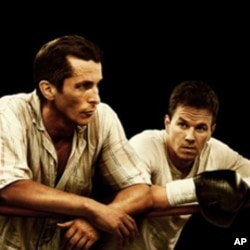With the Oscars just days away, media mavens are abuzz with predictions of which films will win on Hollywood's biggest night. The Academy of Motion Picture Arts and Sciences recently doubled the number of films competing for Best Picture from five to 10, making the selection even more contentious.
What criteria are necessary for a "Best Picture?" The contenders offer a diverse picture of the finest Hollywood has to offer.
Don Cobb masterminds high tech corporate espionage in Chris Nolan’s dream-like film "Inception." The film delves into the human subconscious. Besides Best Picture, it has received seven other nominations, including original screenplay, score, cinematography and visual effects.
The plot of "Inception" combines mystery, action, horror and character development but despite its mesmerizing cinematography the film is confusing. It overloads the viewer with too many subconscious worlds.
There's a similar problem with Darren Aronofsky’s "Black Swan." His story of Nina, an emotionally conflicted prima ballerina pursued by unseen enemies, is fraught with meandering sub plots which confuse the viewer.
Aronofsky, who also received an Oscar nomination for best director, tries to keep us guessing until the end. But in the process, our attention has trailed off.
The film is visually rich; the costumes and music are superb. And one has to hand it to Natalie Portman, who received a Best Actress nomination, for getting into prima ballerina shoes. But does a film that lacks focus deserve to win Best Picture?
Tom Hooper’s period piece, "The Kings Speech," is about King George VI and his battle to overcome a debilitating stutter as he prepares to address the British people at the outset of World War ll. The movie is masterful and has earned 12 Oscar nominations. Colin Firth delivers an Oscar-worthy performance as King George. Geoffrey Rush is a match for him in the supporting role of speech therapist Lionel Logue. However gripping, this film lacks the cinematic scope one expects from a Best Picture Oscar-winning movie.
And then, there's "The Social Network."
Director David Fincher and script writer Aaron Sorkin deliver a crisp story about Facebook founder Mark Zuckerberg and his morally-questionable path to dizzying success. Actor Jesse Eisenberg received a Best Actor nomination for his portrayal of the anti-social computer genius.
The film’s clipped dialogue and storyline appeal to the younger audiences the Academy is trying to woo. But does "The Social Network" deserve to be crowned Best Picture? It's a trendy story but it lacks the cinematic grandeur of an Oscar winner.
David O Russel’s uplifting drama, "The Fighter," may be a metaphor for the film’s path to the Oscars. Based on a true story, it's about a boxer who wins against all odds. Nominated for seven Academy awards, "The Fighter" offers an impressive cast, dramatic scenes and larger-than-life boxing sequences.
Part of the movie is filmed in documentary style and one could argue that much of it is too grainy to be deserving of the Best Picture award. However, the gritty scenes reflect a working class Boston neighborhood. And the boxing scenes are grand.
"The Fighter" does not contain the cinematic greatness of "Inception," "Black Swan’s" harrowing elegance or "The Social Network’s" hipness.
In the end, none of this year's Oscar contenders achieves a perfection that sets it far apart from the others.





